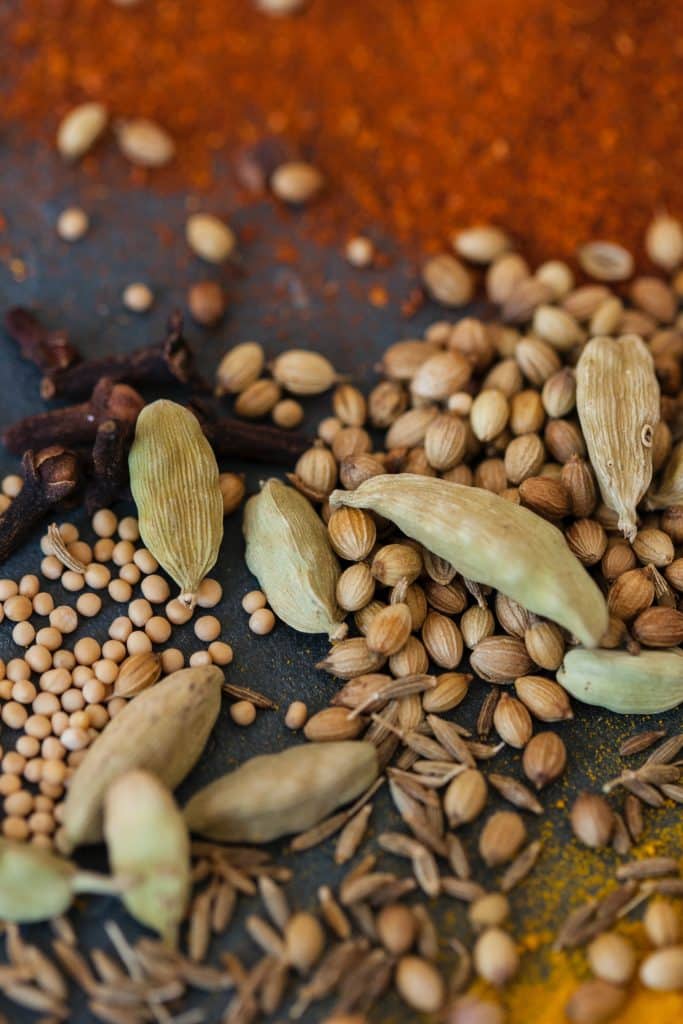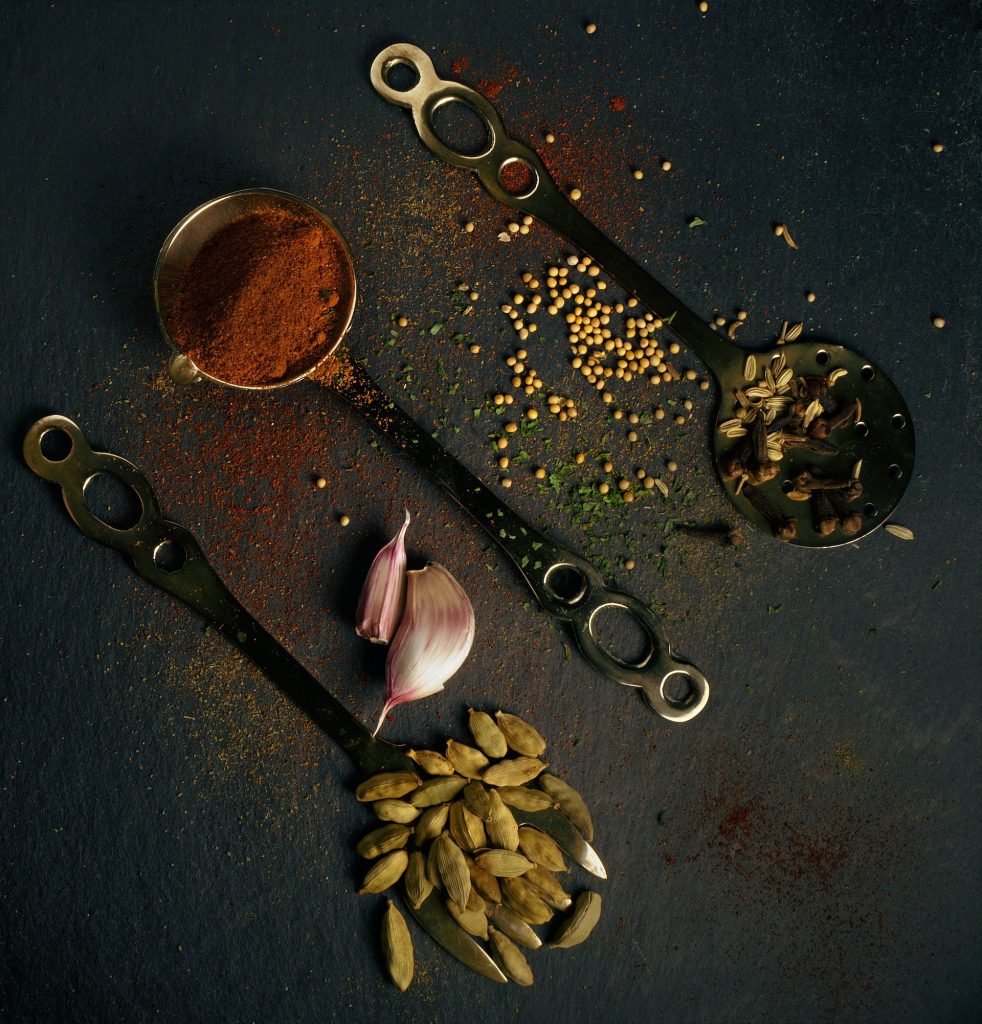Cardamom is a spice made from the seed pods of a number of plants that are in the ginger family. These pods are shaped like spindles with a distinctive triangular cross section. It is used widely in Indian, Arabic, Middle Eastern, and Swedish culinary traditions. It has also been very popular in the west for decades.
Cardamom is used as a spice in both sweet and savory dishes. But naturally, our concern is whether or not dogs can safely eat Cardamom. The short answer to this question is – Yes, dogs can eat Cardamom. Generally, this is to be done only on occasion and only to give it sparingly. Cardamom is not something that is natural for dogs to eat, and in some cases, it is not advisable at all. But let’s look deeper.

Is Cardamom Safe for Dogs to Eat?
Most of the time, cardamom is considered to be safe for dogs to eat. There are many herbs and spices which dogs can and do eat. These include turmeric, parsley, basil, and ginger. This spicy herb does have a number of potentially beneficial health effects for dogs, so there may be good reason to give it to them.
Of course, it is more likely that a dog will eat Cardamom by mistake when he gets into your food should you leave it unattended on the table. If this is the case and you are concerned, you should know that your dog will probably be fine. If it was only a small amount, you wouldn’t have much to worry about.
Just make sure you keep a close eye on your dog over the next 24 to 48 hours, especially if he has never had Cardamom or anything like it before. On the other hand, there may be some reason to give this spice to your dog on purpose once in a while.

Potential Health Benefits of Cardamom for Dogs
Like other herbs in the ginger family, Cardamom has some significant antimicrobial benefits. This means it can be a good part of an antibiotic treatment. Cardamom can help protect your dog from parasites. It is also recommended for constipation, diarrhea, indigestion, and other forms of intestinal distress.
It can help alleviate other symptoms such as nausea and coughing. If your dog has an overactive appetite or is not getting enough to eat for other reasons, Cardamom can help to alleviate his feelings of hunger, since it is known to trigger satiation.
Cardamom may also be beneficial to your dog if he is suffering from a urinary tract, kidney, or bladder infection. Essential oil made from Cardamom can be a good alternative to feed to your dog for medicinal purposes. It can also be used topically as a disinfectant. But for internal purposes, it is usually better to simply mix it with your dog’s food.
If you do give Cardamom to your dog, it is important to remember to do it sparingly. When giving it for medicinal purposes, many people assume more is better and give it in large doses. Not only will your dog not like that, but it is ill advised from a health standpoint. When giving it for medicinal reasons, it is best to mix in a small amount with your dog’s food each day over a period of days.
If your dog is diabetic, he may benefit from having Cardamom incorporated into his regular diet. Cardamom has the ability to help regulate insulin responses and can counteract some of the adverse effects of sugar and carbohydrates. Cardamom can be a good way to treat diabetes in dogs as a regular part of their diets.
When Should You Avoid Giving Cardamom to Dogs?
While it is rare for a dog to be allergic to Cardamom, it is not unheard of. If you believe your dog may have a Cardamom allergy, and he has eaten something with Cardamom in it, you will need to watch him closely over the first hour especially. If no signs of distress emerge within the first two hours, then it is unlikely that any adverse reactions will manifest.
If your dog has ever eaten any plant products in the ginger family, including garlic, and reacted poorly to it, then you should probably avoid giving him Cardamom.
If your dog eats Cardamom and exhibits any strange behavior at all, it is strongly advised that you take him to the veterinarian.
How to Feed Cardamom to Your Dog
Do not try to feed a whole Cardamom seed pod to your dog. In almost every case, it is best to grind the Cardamom up thoroughly and mix it with the animal’s regular food.
Dogs do not often like the taste of Cardamom unless it is mixed in thoroughly and given in small amounts. In fact, your dog’s natural flavor preferences are probably a good way to help you regulate the amount you give him.
If he turns away from his dish, you have probably given him too much. Simply mix in more of his regular food to thin the Cardamom down and try again.
Photo Credits:
Mixed Spices (Pexels)
Spices on steel ladle (Pexels)



